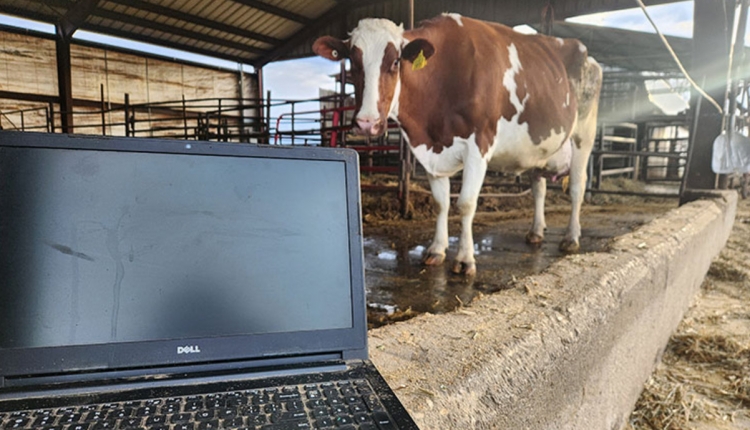GMOs are one of the most hotly debated issues on tap today; yet science and emotion seem unable to find a common ground. This past Thursday, Vermont firmly aligned itself on the side of emotion, becoming the first state to mandate labeling of foods made with genetically modified organisms (GMOs). Signed by Governor Peter Shumlin, the law is set to take effect July 1, 2016.
Under this law, food sold for human consumption in Vermont that is entirely or partially produced with genetic engineering must be labeled to indicate this fact.
At the signing, Governor Shumlin noted, "Vermonters take our food and how it is produced seriously, and we believe we have a right to know what's in the food we buy. I am proud that we're leading the way in the United States to require labeling of genetically engineered food. More than 60 countries have already restricted or labeled these foods, and now Vermont will also ensure that we know what's in the food we buy and serve our families."
This move by the Green Mountain State sets the stage for approximately two dozen others considering similar legislation.
Research shows though, that after consumption, there is no remaining GMO-based DNA in postdigested food. To date, an estimated 180 billion food animals raised in the U.S. and EU have eaten GMOs with no documented effects. If that weren't enough, humans have consumed 2 trillion meals containing GMO-based ingredients and not one published paper indicates a health concern.
Food and agriculture companies have already begun to contest the law on the grounds that GMO crops and the products produced from them have been proven safe. Such labels, they note, imply that GMO foods are unsafe, confusing consumers, much like the labeling of products as rBST-free has been shown to do.
Biotechnology Industry Organization and Grocery Manufacturers Associations have backed a proposed federal law to nullify Vermont's foray into the realm of food labeling.
Two opposing ideals won't move our food production system forward. If we expect to feed the world, we must reach a point where food production for the masses and choice for the well-to-do can coexist without vilifying one another. The agricultural industry has brought forth many advances that we have later lost; GMOs are a technology we cannot afford to lose.
 The author, Amanda Smith, was an associate editor and an animal science graduate of Cornell University. Smith covers feeding, milk quality and heads up the World Dairy Expo Supplement. She grew up on a Medina, N.Y., dairy, and interned at a 1,700-cow western New York dairy, a large New York calf and heifer farm, and studied in New Zealand for one semester.
The author, Amanda Smith, was an associate editor and an animal science graduate of Cornell University. Smith covers feeding, milk quality and heads up the World Dairy Expo Supplement. She grew up on a Medina, N.Y., dairy, and interned at a 1,700-cow western New York dairy, a large New York calf and heifer farm, and studied in New Zealand for one semester.
Under this law, food sold for human consumption in Vermont that is entirely or partially produced with genetic engineering must be labeled to indicate this fact.
At the signing, Governor Shumlin noted, "Vermonters take our food and how it is produced seriously, and we believe we have a right to know what's in the food we buy. I am proud that we're leading the way in the United States to require labeling of genetically engineered food. More than 60 countries have already restricted or labeled these foods, and now Vermont will also ensure that we know what's in the food we buy and serve our families."
This move by the Green Mountain State sets the stage for approximately two dozen others considering similar legislation.
Research shows though, that after consumption, there is no remaining GMO-based DNA in postdigested food. To date, an estimated 180 billion food animals raised in the U.S. and EU have eaten GMOs with no documented effects. If that weren't enough, humans have consumed 2 trillion meals containing GMO-based ingredients and not one published paper indicates a health concern.
Food and agriculture companies have already begun to contest the law on the grounds that GMO crops and the products produced from them have been proven safe. Such labels, they note, imply that GMO foods are unsafe, confusing consumers, much like the labeling of products as rBST-free has been shown to do.
Biotechnology Industry Organization and Grocery Manufacturers Associations have backed a proposed federal law to nullify Vermont's foray into the realm of food labeling.
Two opposing ideals won't move our food production system forward. If we expect to feed the world, we must reach a point where food production for the masses and choice for the well-to-do can coexist without vilifying one another. The agricultural industry has brought forth many advances that we have later lost; GMOs are a technology we cannot afford to lose.
 The author, Amanda Smith, was an associate editor and an animal science graduate of Cornell University. Smith covers feeding, milk quality and heads up the World Dairy Expo Supplement. She grew up on a Medina, N.Y., dairy, and interned at a 1,700-cow western New York dairy, a large New York calf and heifer farm, and studied in New Zealand for one semester.
The author, Amanda Smith, was an associate editor and an animal science graduate of Cornell University. Smith covers feeding, milk quality and heads up the World Dairy Expo Supplement. She grew up on a Medina, N.Y., dairy, and interned at a 1,700-cow western New York dairy, a large New York calf and heifer farm, and studied in New Zealand for one semester.









